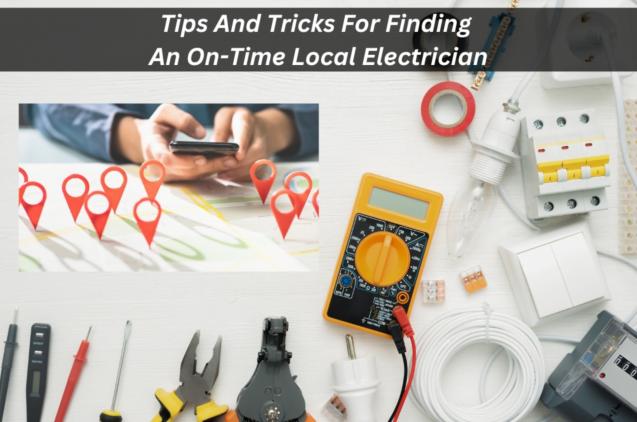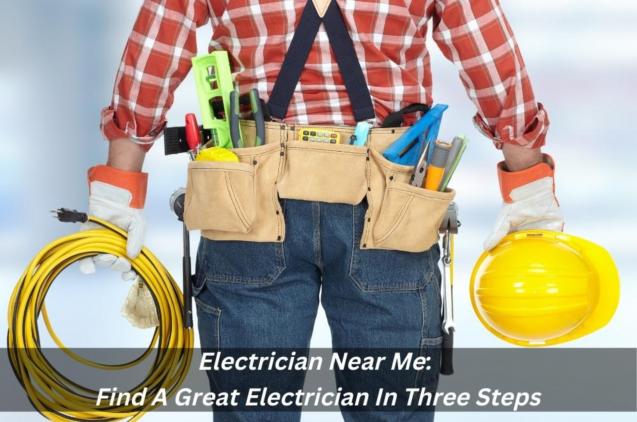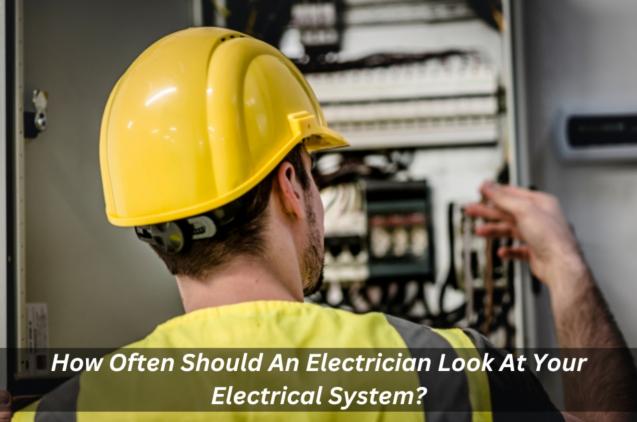
Difference Between Industrial And Commercial Electricians
By Electrician Near Me Sydney|October 21, 2022
There are two major types of electrical jobs—industrial and commercial. What does a commercial electrician do? And how is it different from an industrial electrician?
They both require similar knowledge and experience, however, they differ slightly in terms of their level of responsibility and pay.
The main differences between these two titles include the size of the company they work at, the type of equipment they work with, and the complexity of projects.
For example, industrial electricians typically work for large companies such as manufacturers or construction contractors and tend to focus on project management, documentation, and high quality control.
In contrast, commercial electricians usually work for small business owners and focus primarily on installation and troubleshooting. They mostly work on small projects that involve fewer steps.
So what's the difference between an industrial and a commercial electrician? Let's compare them side-by-side.
Commercial Electrical Services
A commercial electrician has a number of responsibilities when working on a job site. These duties vary depending on the size of the company he works for. Smaller jobs often have less responsibility, while larger jobs may offer more duties. Here are some typical tasks performed by a licensed electrician during a commercial job.
• Troubleshoot problems with lighting and other fixtures
• Install new outlets
• Wire up existing outlets
• Test and repair wiring at various points around a property
• Maintain and repair electrical panels
• Perform diagnostics on electrical equipment
• Fix any issues related to power surges and spikes
• Provide maintenance services for lighting systems
• Oversee safety procedures
These are just some examples of what a commercial electrician might be responsible for when performing his duties. Depending on the industry, the position will likely include additional responsibilities.
Industrial Electrical Services
An industrial electrician usually performs many of the same duties as a commercial electrician, but there are also some unique roles you'll see him play. Below are some of the most common ones.
• Maintain and service electrical panels
• Create diagrams of the electrical system
• Work on complex installations
• Manage a team of technicians and installers
• Ensure compliance with local regulations
• Troubleshoots problems with lighting and other equipment
If your career goal is to become an industrial electrician, then this may be the path for you. You're going to need to obtain certification first before applying for a job.
Common Emergency Electrical Problems & Solutions
Different ranges of electrical systems are prone to breakdowns. This can happen due to numerous factors, such as faulty wiring, aging components, and lack of proper upkeep.
Regardless of the reason, these types of failures require professional service intervention from an experienced emergency electrician. Here are some common electrical problems and solutions.
Other potential issues may involve broken pins or wire connectors on the ballast. Contact local electricians to get the problem resolved.
These are just some of the common electrical work you should know. You shouldn’t attempt DIY fixes unless you have experience with electrical work.
Call in 24 hour working expert electricians if you need help fixing your home's electrical cooling systems. If you don't know where to start, try searching "electrician near me" online to help you get started.
They both require similar knowledge and experience, however, they differ slightly in terms of their level of responsibility and pay.
The main differences between these two titles include the size of the company they work at, the type of equipment they work with, and the complexity of projects.
For example, industrial electricians typically work for large companies such as manufacturers or construction contractors and tend to focus on project management, documentation, and high quality control.
In contrast, commercial electricians usually work for small business owners and focus primarily on installation and troubleshooting. They mostly work on small projects that involve fewer steps.
So what's the difference between an industrial and a commercial electrician? Let's compare them side-by-side.
Commercial Electrical Services
A commercial electrician has a number of responsibilities when working on a job site. These duties vary depending on the size of the company he works for. Smaller jobs often have less responsibility, while larger jobs may offer more duties. Here are some typical tasks performed by a licensed electrician during a commercial job.
• Troubleshoot problems with lighting and other fixtures
• Install new outlets
• Wire up existing outlets
• Test and repair wiring at various points around a property
• Maintain and repair electrical panels
• Perform diagnostics on electrical equipment
• Fix any issues related to power surges and spikes
• Provide maintenance services for lighting systems
• Oversee safety procedures
These are just some examples of what a commercial electrician might be responsible for when performing his duties. Depending on the industry, the position will likely include additional responsibilities.
Industrial Electrical Services
An industrial electrician usually performs many of the same duties as a commercial electrician, but there are also some unique roles you'll see him play. Below are some of the most common ones.
• Maintain and service electrical panels
• Create diagrams of the electrical system
• Work on complex installations
• Manage a team of technicians and installers
• Ensure compliance with local regulations
• Troubleshoots problems with lighting and other equipment
If your career goal is to become an industrial electrician, then this may be the path for you. You're going to need to obtain certification first before applying for a job.
Common Emergency Electrical Problems & Solutions
Different ranges of electrical systems are prone to breakdowns. This can happen due to numerous factors, such as faulty wiring, aging components, and lack of proper upkeep.
Regardless of the reason, these types of failures require professional service intervention from an experienced emergency electrician. Here are some common electrical problems and solutions.
- Outlets aren’t working
- Faulty Wiring
- Lights aren't turning on
- Noisy Lighting
- Lights flickering
Other potential issues may involve broken pins or wire connectors on the ballast. Contact local electricians to get the problem resolved.
- Smoke detectors aren’t functioning
- Overhead Lights Aren't Working
These are just some of the common electrical work you should know. You shouldn’t attempt DIY fixes unless you have experience with electrical work.
Call in 24 hour working expert electricians if you need help fixing your home's electrical cooling systems. If you don't know where to start, try searching "electrician near me" online to help you get started.



